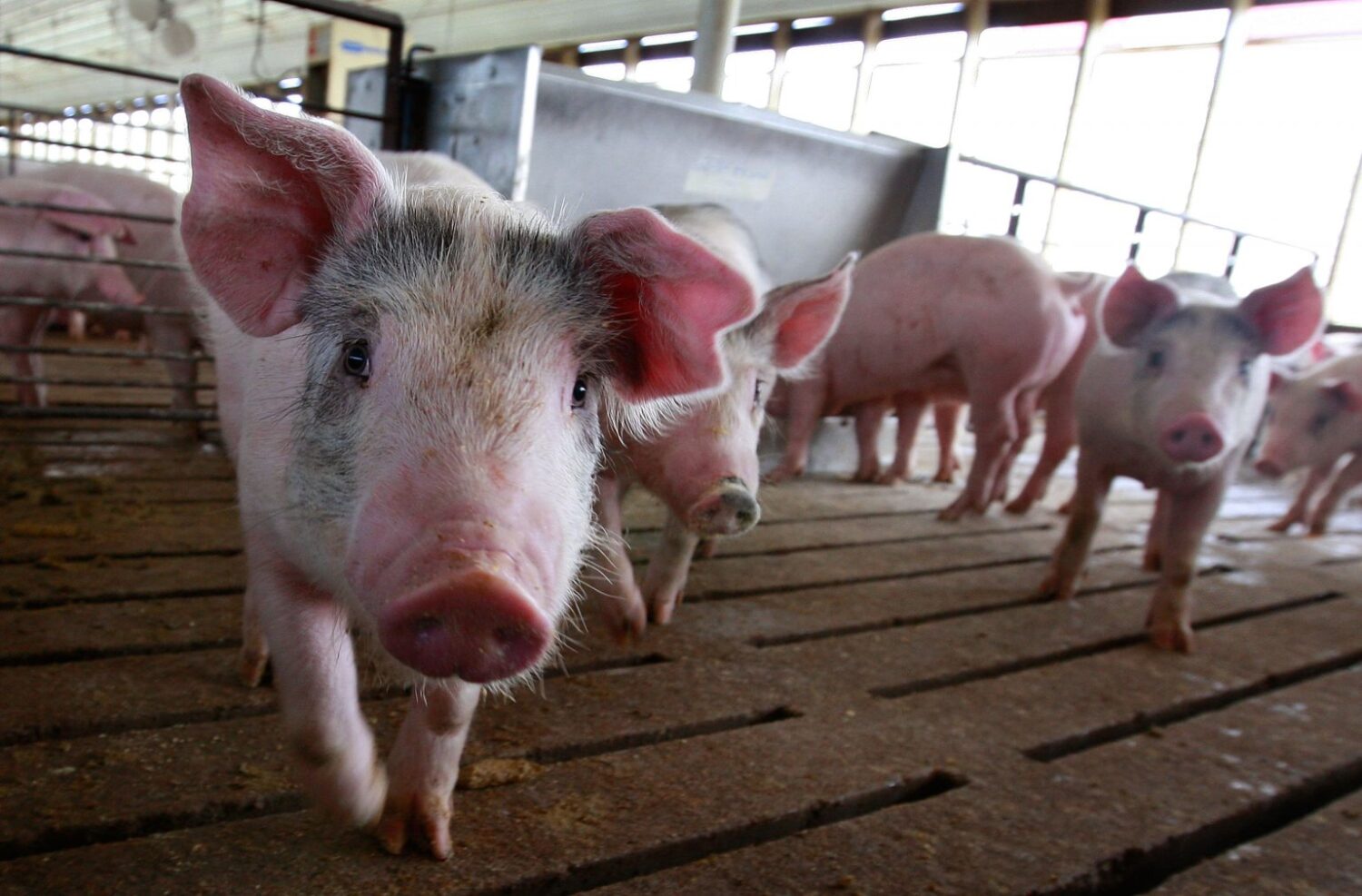
Cami Koons, Iowa Capital Dispatch
Iowa and 21 other pork-production states, including South Dakota, are pushing for an appeal of a federal district court ruling that upheld a 2016 ballot measure in Massachusetts to prohibit the sale of pork, poultry and veal from livestock that were “confined in a cruel manner.”
Iowa Attorney General Brenna Bird headed an amici curiae, or an informational brief in support of one side of a case, with 21 additional states to voice opposition to laws that impose “unworkable restrictions” on hog producers.
The 2016 measure, known as Question 3, has been challenged multiple times by hog farmers and pork coalitions, most recently by Missouri-based Triumph Foods, with support of a coalition of pork producers, including Iowa, in 2023.
The law is similar to California’s Proposition 12 in that both restrict the sale of meat from pigs, calves raised for veal or egg-laying hens that were raised in a confining manner, “that prevents the animal from lying down, standing up, fully extending its limbs, or turning around freely.”
The U.S. Supreme Court rejected challenges made by pork producers of the California law in May 2023. U.S. District Judge William Young in the District of Massachusetts dismissed most of the most of the claims against the Massachusetts law, leaving only one in question, which he rejected in July 2024.
This final claim argued that the Massachusetts law, the Prevention of Farm Animal Cruelty Act, was preempted by the Federal Meat Inspection Act. Young upheld the law and ruled it banned the sale of noncompliant meat and did not directly impact slaughterhouse rules.
The brief filed by Bird and the other states, is in support of Triumph Foods’ appeal to the latest district court decision.
“The Massachusetts pork ban is absolute hogwash,” Bird said in a press release about the brief. “Massachusetts does not get to tell Iowans how to raise their pork.”
The brief opens with a hypothetical of Iowa imposing a trade restriction on shellfish based on the way it was harvested, even though the land-locked state has little knowledge of these processes.
“That is what Massachusetts is doing here—imposing a detrimental and overly burdensome regulatory scheme on the almost entirely out-of-Massachusetts pig farmers and pork processors,” the brief reads.
The brief goes on to say that Q3 will, “deny market access to out-of-state pork farmers and processors,” “harm agricultural states,” and “increase the price of pork for all Americans.”
The opposing states argue that the law violates several inter-state commerce clauses of the Constitution.
The recent brief argues that allowing states to set their own confinement rules creates a patchwork of regulation, which would be costly for pork producers to adhere.
“Farmers in Iowa could invest millions of dollars to remodel their hog farms to comply with Massachusetts’s requirements only to find New York enacting a law imposing larger housing requirements per pig,” the brief said.
Federal lawmakers have pushed for several years to pass versions of the Ending Agricultural Trade Suppression, or EATS, act to prohibit individual states and local governments from enacting laws that would impose “a standard or condition on the preharvest production of any agricultural products,” sold across state lines.
The bill was introduced in 2023 by Republican Kansas Sen. Roger Marshall, with co-sponsors including Sen. Joni Ernst and Sen. Chuck Grassley of Iowa.
The House Agriculture Committee’s website on the 2024 Farm Bill lists a similar “legislative solution” to Proposition 12 and similar state laws.
Congress failed to pass a new Farm Bill before its Sept. 30 expiration, due to disagreements on funding. Lawmakers could pass a new Farm Bill when they return Nov. 12.
Attorneys general from Alabama, Arkansas, Georgia, Louisiana, Kansas, Kentucky, Missouri, Mississippi, Montana, Nebraska, North Dakota, New Hampshire, Ohio, Oklahoma, South Carolina, South Dakota, Texas, Utah, Virginia, West Virginia and Wyoming, are listed on the recent brief led by Bird.
